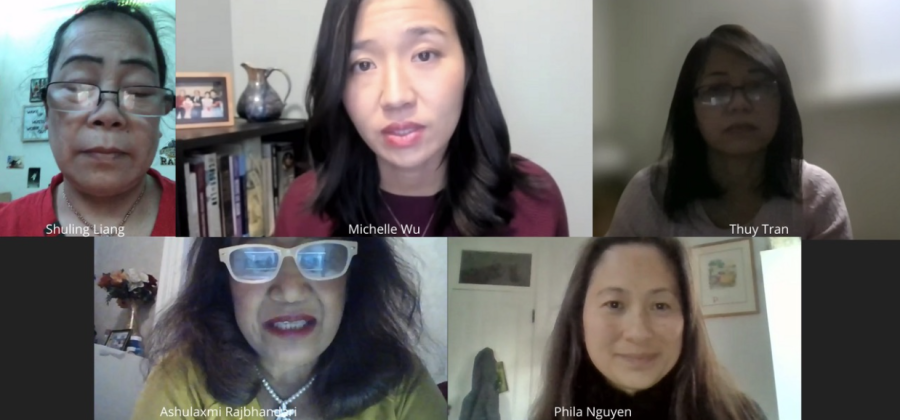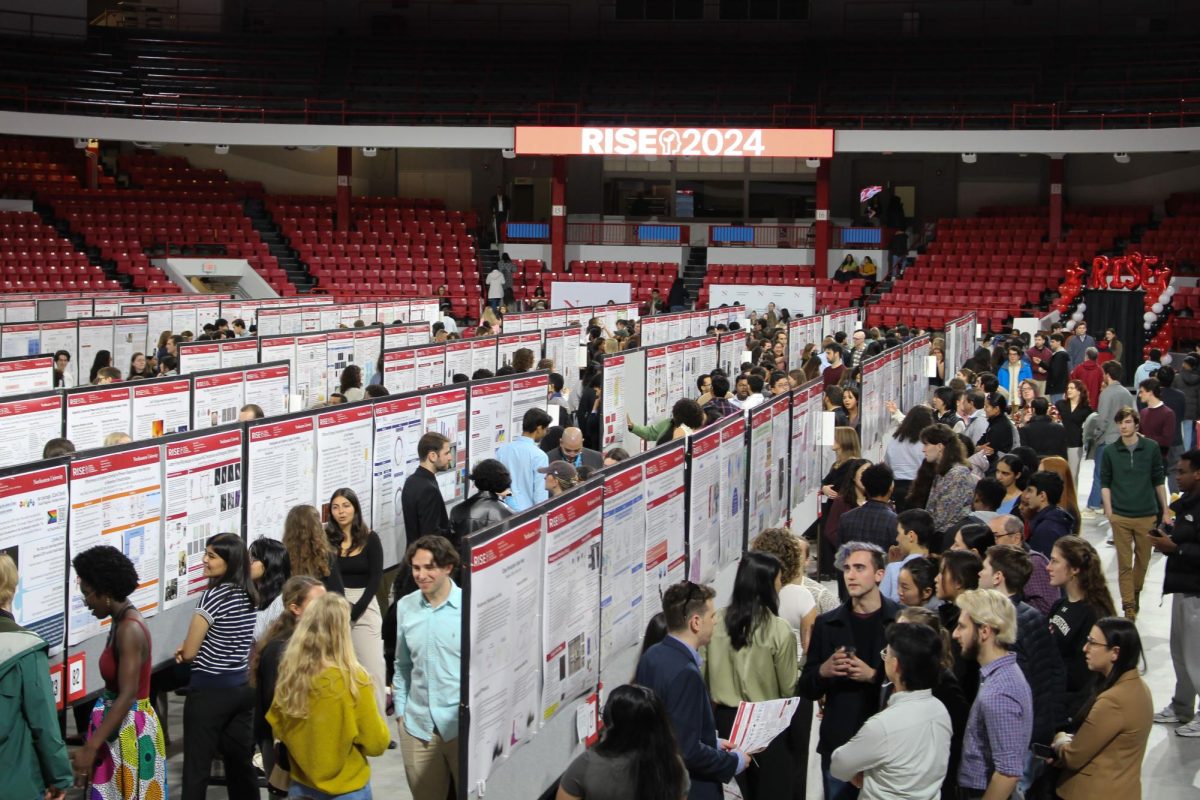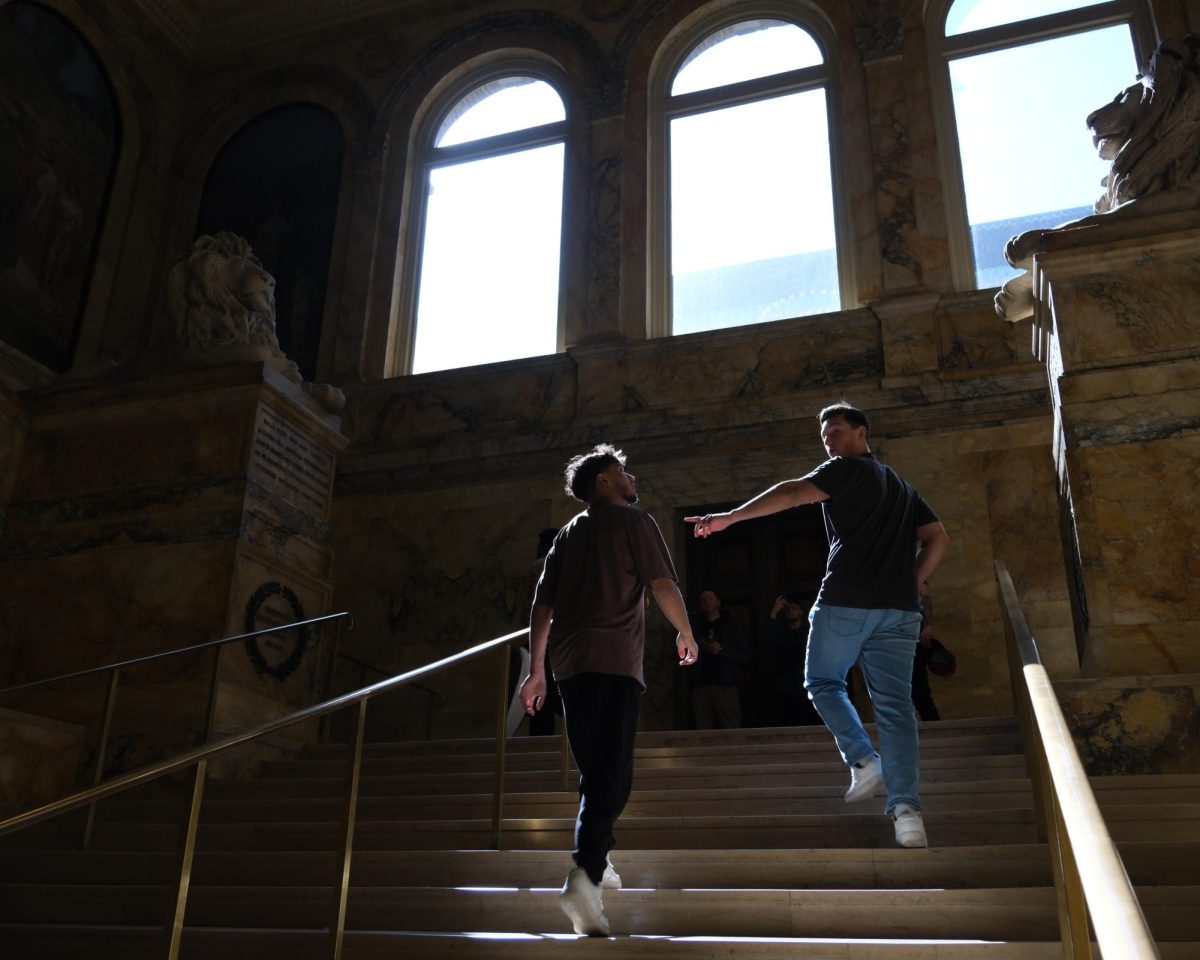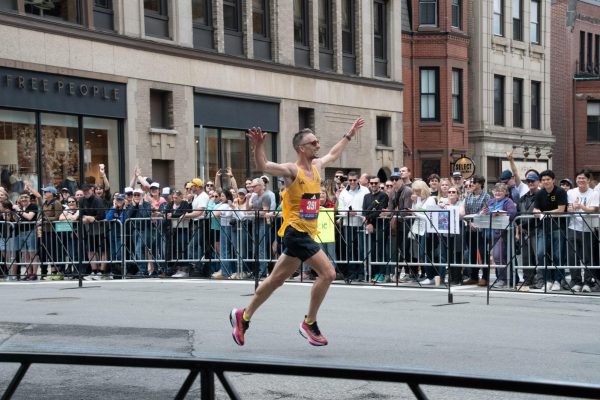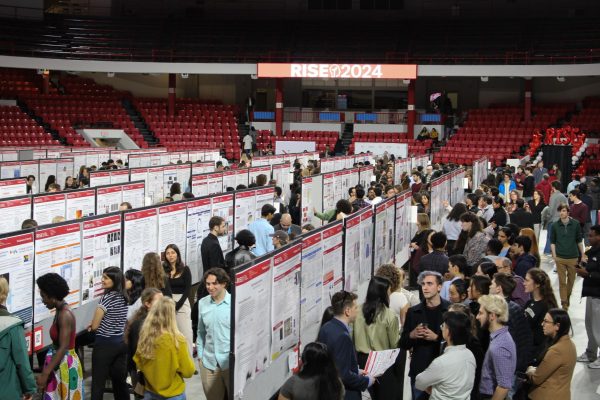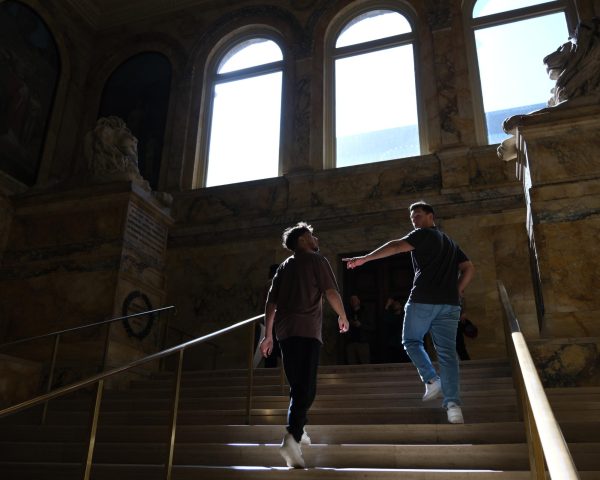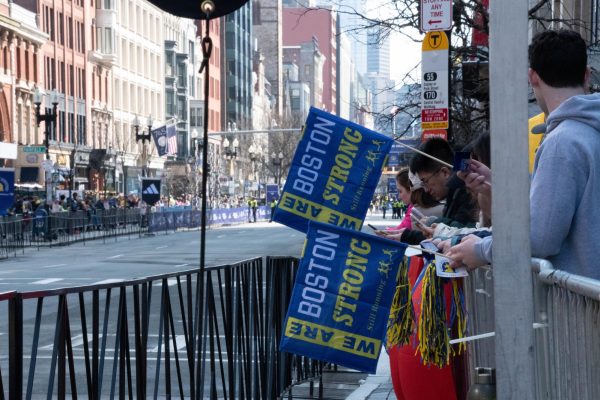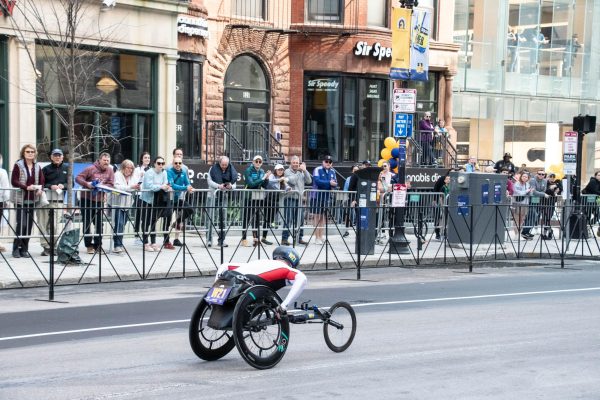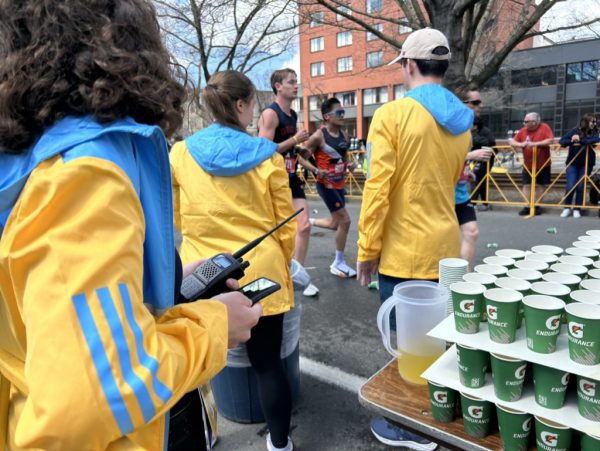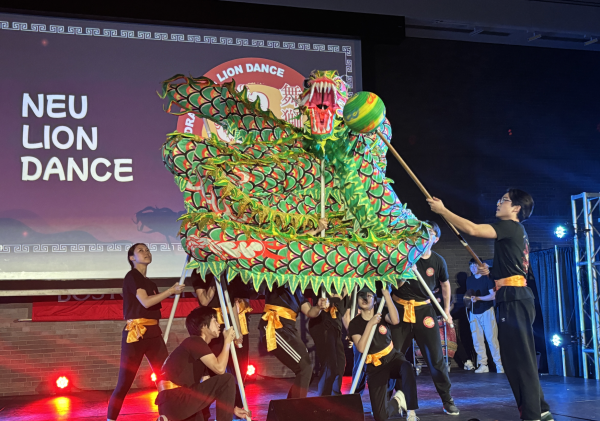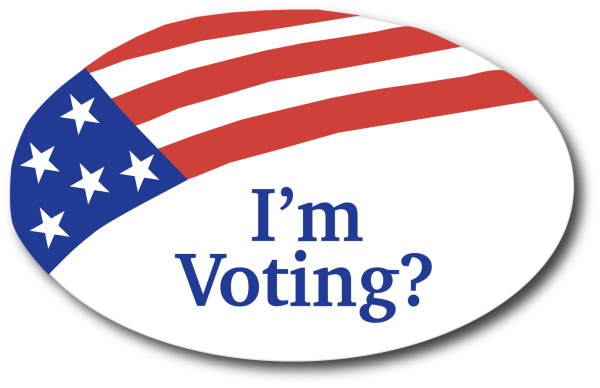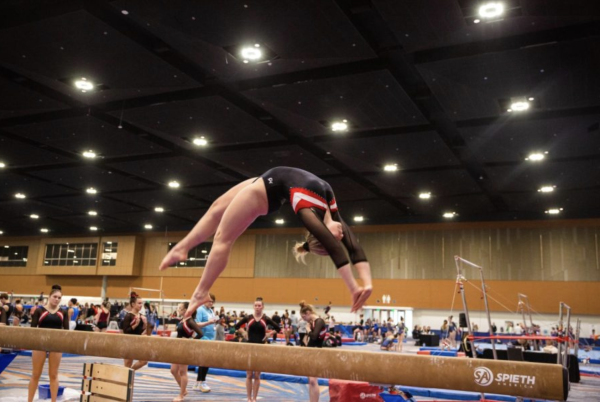Boston-area Asian American women commemorate anniversary of Atlanta spa shootings
A year after the 2021 Atlanta spa shootings, Boston-area Asian American women leaders gathered in an online panel March 14 to share their stories. Photo credit Karissa Korman.
March 16, 2022
On March 16, 2021, a man traveled to three spas in the Atlanta area and shot eight people, six of whom were Asian women: Daoyou Feng, Xiaojie “Emily” Tan, Yong Ae Yue, Soon Chung Park and Suncha Kim and Hyun Jung Grant. To honor the one-year anniversary of the event, Boston-area Asian American women gathered in an online panel March 14 to share their stories.
Asian Pacific Islanders Civic Action Network, or APIs CAN, hosted a panel with Boston Mayor Michelle Wu and representatives from the Vietnamese American Initiative for Development, or VietAID; the Asian Community Development Corporation; and Asian Americans Advancing Justice, Atlanta. Cantonese, Mandarin, Nepali and Vietnamese interpretation was provided during the livestream.
Angie Liou, the executive director of VietAID, recounted the centuries-long history of systemic anti-Asian racism in the U.S. that has presented itself in all levels of life — from the federal to the physical.
“The current climate of hateful and racist rhetoric since the pandemic began two years ago, you can see, did not come out of nowhere,” Liou said during the panel. “It worsened into incidents of physical violence that culminated in last March’s shootings.”
But the course of violence did not stop with the Atlanta shooting. The same day as the March 14 panel, a New York man beat an Asian American woman, stomped and spit on her. Earlier this month, another man assaulted seven Asian women within two hours. Last month, New Yorker Christina Yuna Lee was followed back to her apartment, where she was stabbed to death and found half-naked in her bathtub.
After a year of escalated anti-Asian violence, discrimination and hate speech following the onset of the pandemic, the Atlanta spa murders shook the Asian American community. The shootings marked the beginning of a public reckoning with the growing violence against Asian women in the country.
“When I first heard the news, I was very deeply shaken. I was scared. I was angry. I didn’t want it to be true,” Wu said, recalling the moment the news of the deaths in Atlanta broke. “Yet, I knew deep down that there was a part of me that wasn’t completely surprised, and that was the worst of all of it — that it felt like what we saw a year ago was, in some ways, the conclusion, or another step in the escalation of attacks that our communities have been facing since the pandemic began and before.”
To bring the stories of everyday Asian American women to life in the year-long wake of the Atlanta shootings and ensuing onslaught of violence, the panel heard from “P” Nguyen, Thuy Tran, Shuling Liang and Ashulaxmi Rajbhandari, who are all working against anti-Asian violence in the Boston community.
Nguyen recollected the moment her family learned about the fatal attacks in Atlanta.
“My mother kept calling me and my sister on the phone to tell us not to go out,” Nguyen said. “She would say things like, ‘They hate us right now, and it’s dangerous for Asians.’”
Nguyen voiced her anxieties as an immigrant wife and mother. She shared the story of her husband’s deportation threat, her fear of the U.S. Immigration and Customs Enforcement and the burden of said stress on her and her family.
“This is yet another type of violence against Asian immigrants that doesn’t get talked about,” Nguyen said. “Every day, I live in fear that my family will be torn apart because of this threat. I fear that the life I have — the life that my husband and I worked so hard to build — would be destroyed.”
Tran, Liang and Rajbhandari’s stories echoed Nguyen’s. They shared their experiences as immigrant women striving for better lives for themselves, their daughters and their communities — an endeavor made all the more difficult by systemic anti-Asian racism, xenophobia and recently emboldened violence against Asians in the U.S.
In September 2021, Stop AAPI Hate, a national coalition that gathers data on hate incidents, reported that one in five Asian Americans experienced a hate incident in the past year. Stop AAPI Hate found that women reported 63.3% of all recorded hate incidents — that’s over twice as often as Asian men.
Boston’s own Chinatown has been a refuge for Asian Americans for generations, withstanding the effects of the Chinese Exclusion Act of 1882 and decades of attempts to dissolve the neighborhood throughout the 20th century. Throughout the pandemic, Chinatown has become a site of both risk and respite for Asian Bostonians.
Wu followed the four women with her own reflections as an Asian American daughter of Taiwanese immigrants, a mother and a community leader.
“It’s a very specific kind of pain to see yourself, your parents, your grandparents, your children reflected in those who are being attacked and to know that the connection we share — the way that someone looks, their culture, language, traditions, experiences — are in fact the reason behind some of this violence,” Wu said.
Despite the months of community suffering, fear and grief, Wu concluded the series of speeches with a note of gratitude for the anniversary panel and a call to action.=
“This space was a recognition of [our community’s history], and even more importantly, an invitation, a demand, an affirmation, that we belong together, centered in community, visible in the light to share our stories and make sure that our communities are seen and known, heard, treasured,” Wu said.
This story was updated March 23 4:56 p.m. to reflect privacy for one of the panelists.


